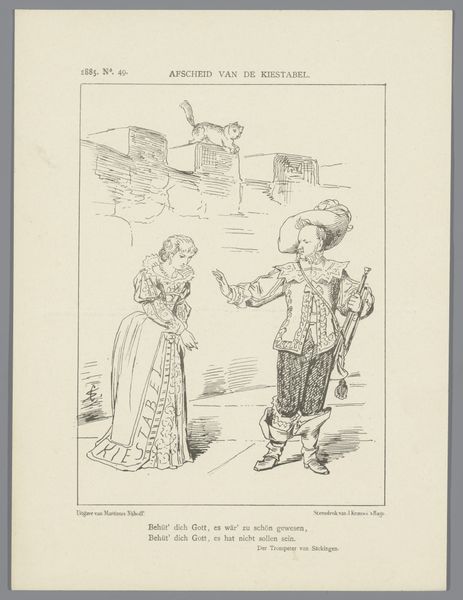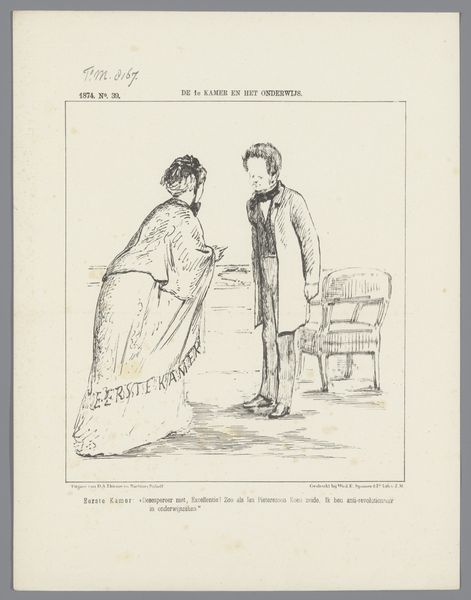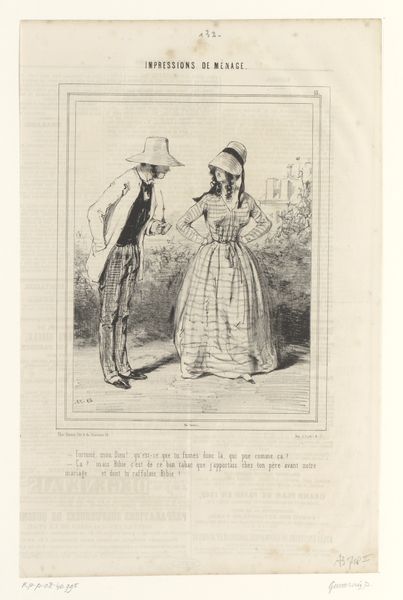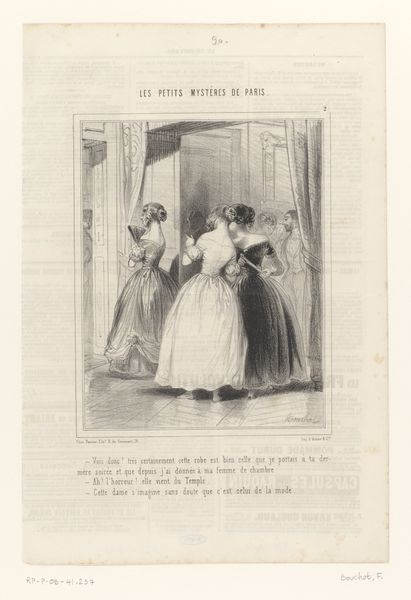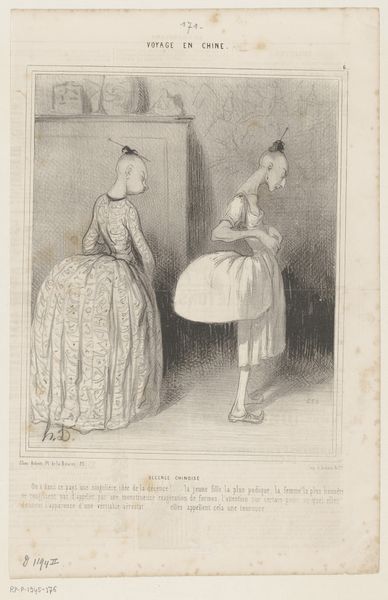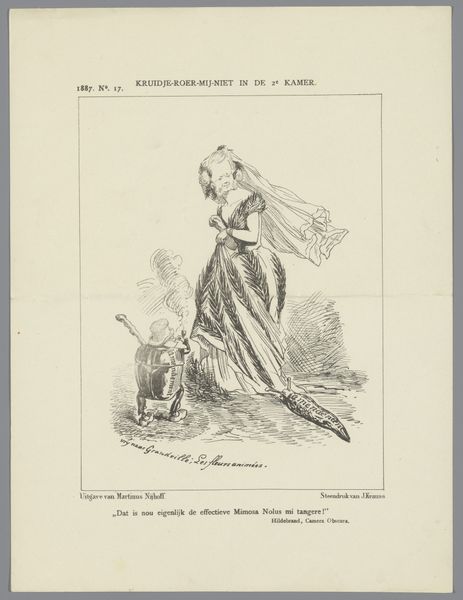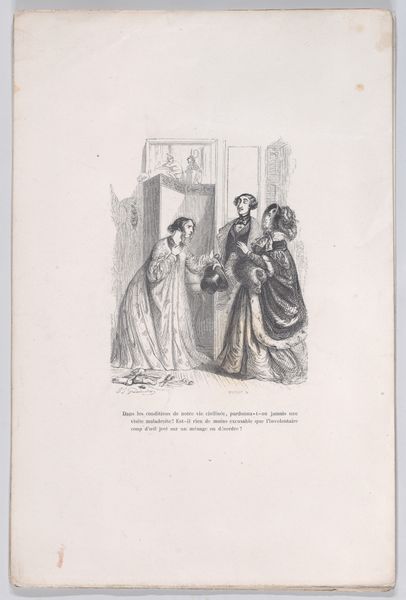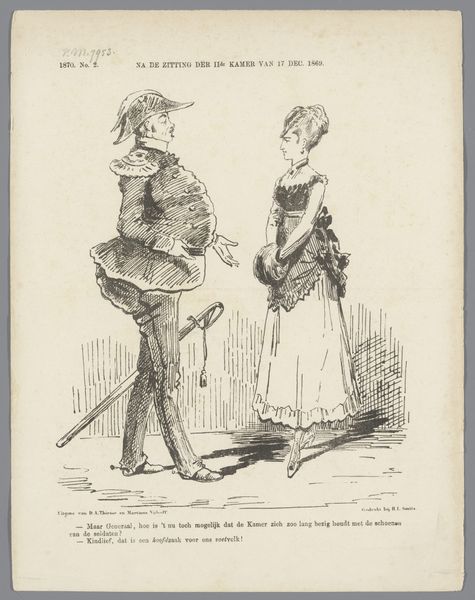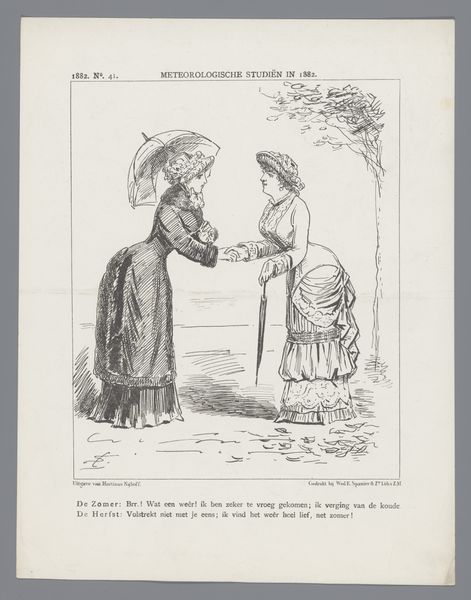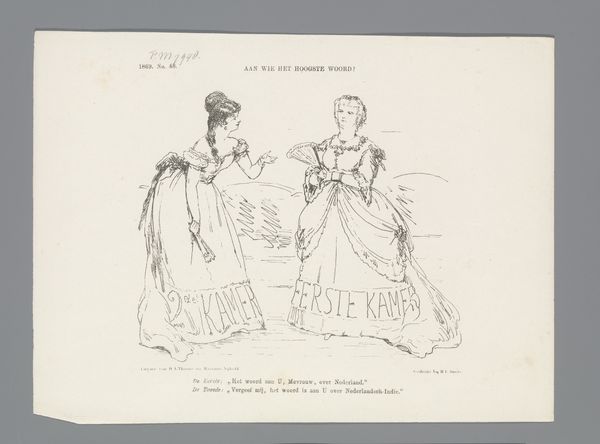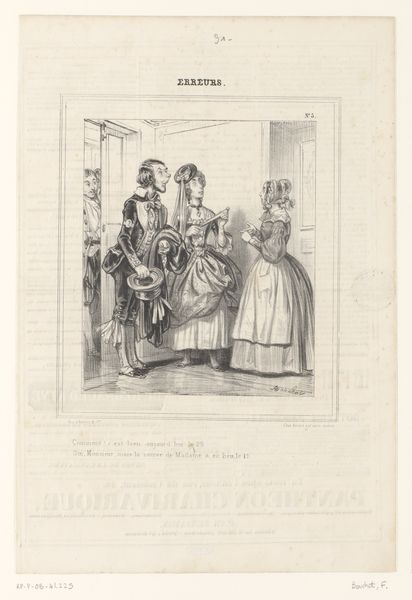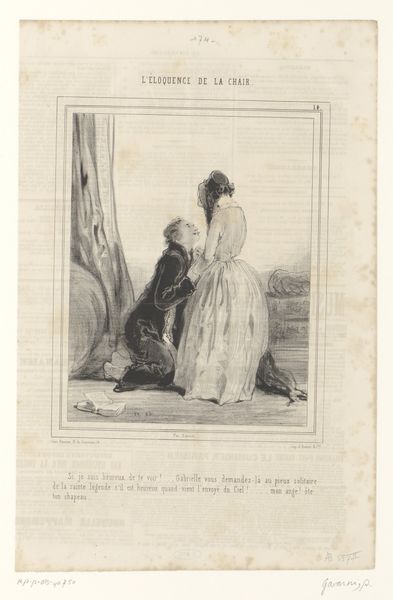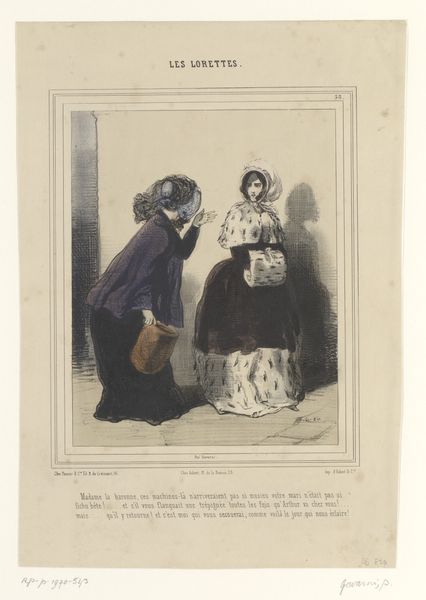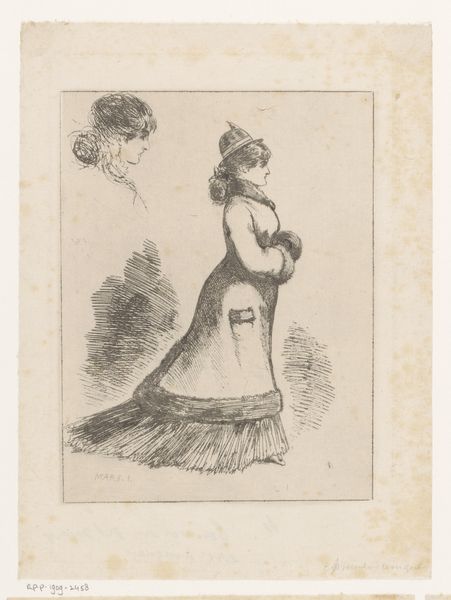
print, engraving
#
portrait
# print
#
figuration
#
line
#
genre-painting
#
engraving
#
realism
Dimensions: height 275 mm, width 215 mm
Copyright: Rijks Museum: Open Domain
Curator: This engraving, simply titled "Spotprent over de grondwetsherziening, 1887", which roughly translates to "Cartoon on the constitutional amendment, 1887," is by Johan Michaël Schmidt Crans. The line work creates an intimate scene. Editor: I am immediately drawn to the dress on the figure on the left. The heavy ruffles suggest the weight of expectation or the density of tradition, depending on the point of view of the observer. Curator: The artwork speaks volumes about the evolution of the Netherlands, and is rooted in historical shifts relating to civic expectations of Dutch women. Editor: Indeed. Semiotically, the abandoned dress suggests discarding what is no longer useful or that doesn’t fit. Note how the dress’s placement directs the eye to the female figure; however, its lack of grounding, and being on a mannequin rather than worn suggests temporality and perhaps ephemerality. Curator: I see that the artist has captioned the work with what sounds like a woman's declaration "My costume of 1848 was not so bad, but it is now high time to change my toilet," emphasizing a woman’s perceived power. Editor: The figure’s clothing of the 1880s, however, presents her in soft light, perhaps to convey a lightness or elegance, or even intelligence? Curator: The change in “toilet,” or the dressing room in contemporary vernacular, invites questions around changes of social standing afforded to the figure, perhaps reflective of broader discussions about constitutional amendments from that year. Editor: It’s really brilliant how the contrast is also conveyed within the folds and undulations of both garments through changes of pattern. Curator: Thinking about identity through dress and historical evolution offers the chance to reassess contemporary political discourse and ways that women of The Netherlands negotiate politics to make the old new. Editor: Absolutely, and this focused visual vocabulary reminds us to interrogate, examine, and find new and original ways of observing conventional portraiture.
Comments
No comments
Be the first to comment and join the conversation on the ultimate creative platform.
